How a North Korean Defector Achieves His Dreams after Resettlement

Sang Hoon never had a place to call his own in North Korea, often spending his nights in the homes of his friends and relatives. His thoughts regularly drifted to faraway places and he imagined visiting the outside world. Sang Hoon had always been interested in other countries and hoped to work as a diplomat, but he was never able to follow his dream in North Korea.
His desire to leave his home country grew day by day until he could take it no more. After searching, he found someone to help him escape. Once in China, he connected with our network and made the journey to safety and freedom in South Korea.
Now, Sang Hoon is one of the most passionate, ambitious people we have the privilege to work with. As soon as he resettled, he began taking classes to learn how to use the computer. Most people take one class at a time, but Sang Hoon doubled up on classes and was able to get four computer certificates in very little time. He got a job at a research institute and continues to learn and strives to achieve his goals every day.Our resettlement coordinator Jihyun recently interviewed Sang Hoon. Read it below:

Jihyun What was the best thing that happened to you recently?
Sang Hoon: I bought a car after I saved up some money from working. My job requires a lot of traveling across South Korea, so I needed a car.
In North Korea, I could never even imagine having my own car because it is almost impossible for someone to own one unless they are a high-ranking government official. Even driving a car was something I could only dream about. It still feels surreal to be driving around with my own car in Seoul. I am very happy.
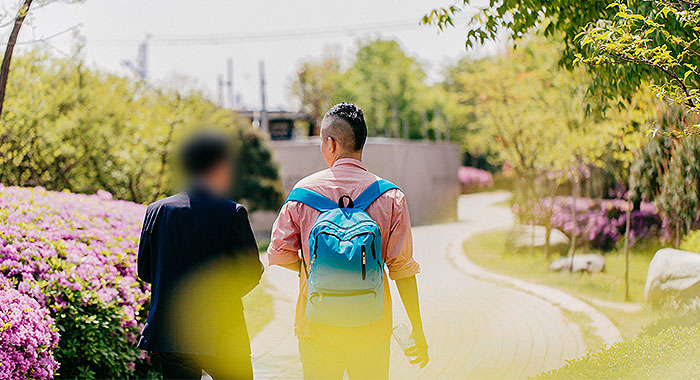
Jihyun You are one of the most positive people that I know. What makes you so positive?
Sang Hoon: I lived more than 40 years in North Korea and I lived for a quite short time in South Korea. The one thing I can say is this: compared to my life in North Korea, my life here is like heaven because I can make money and do my best to achieve my dreams and goals. I can even go travel abroad if I want.
In North Korea, even if the people try really hard, it is almost impossible for them to achieve their dreams and goals because of the way North Korean society is set up. So compared to North Korea, South Korea is a great society. I am thankful for it all the time because my dreams can come true if I try my best here.
I just wish I had come here earlier. If I had come in my 20s, I would’ve experienced more things and worked harder. However, I try to think of it as motivation.
I keep telling myself to study and work more than other people to make up for coming here in my late age. It is never too late.

Jihyun What were some challenges you had when you first resettled to South Korea?
Sang Hoon: When I first resettled to South Korea, I couldn’t get used to seeing young couples kissing each other and almost making out in public. (Laughs)
Seriously, when I first resettled in South Korea most necessities were covered by the government’s benefits for North Korean defectors, but still I felt a little overwhelmed by the reality that I would have to find a job on my own and make a lot of new decisions for the first time in my life. I learned about some job opportunities and how to get a job from Hanawon (the South Korean governmental resettlement facility) and Hana Center (the local resettlement assistance center run by the South Korean government).
However, I still felt like I didn’t have enough information to make informed decisions about my job and other things about my new life.
I didn’t know a lot of things about South Korean society or the words they used so even when I went on the Internet to find more information on my own, I didn’t know what words I should type in to find out the information I wanted to know. I didn’t know what to look up and look for.

Jihyun How did you try to overcome the challenges?
Sang Hoon: I came to South Korea by myself and I don’t have any family members who came before me, so I didn’t have anyone to ask questions about different jobs. So I humbled myself. I decided to learn from people working at Hanawon, Hana Center, and other organizations. I would ask a lot of questions to them regardless of whether they were younger or older than me. I also carefully listened to advice from other North Korean defectors who resettled before me. Through learning from other people, I became eager and positive. I went wherever I could learn.
Jihyun What were some of the new things you learned and got to do after you resettled to South Korea?
Sang Hoon: Using the Internet! On the Internet, I can get all information I want. It is so convenient.
I love the freedom of getting knowledge...being able to learn and study what I want. When I'm on the Internet, I feel connected with the world.

Jihyun What would you like say to other North Koreans defectors?
Sang Hoon: I want to encourage other North Koreans in the new society to not only enjoy their freedom, abundance, and new life, but to also be responsible for things in their lives. I know some North Korean defectors who only enjoy things, but don’t invest in themselves by studying or working hard. I think we should focus on resettling well in the new society through education or work first before we start enjoying things.
I also like traveling around and having fun, but I am waiting to do more of the fun stuff after I get more settled in my new job and new life. Also having gratitude! I want us to remember when things were so hard back in North Korea. That helps us stay positive and grateful for our new lives and freedom. Let’s not focus on only negative things so much.

Jihyun What would you like to say specifically to other resettled North Koreans who came to South Korea in their late age like you and who think it’s too late for them to start learning and trying new things here?
Sang Hoon: I want to tell them “do you remember when we were risking our lives to escape from North Korea and coming out of China? (I even brought a knife to kill myself just in case I got caught because I knew I would get horribly punished for a long time, maybe the rest of my life for escaping North Korea.) We risked our lives to come here. What are you afraid of? What can you not do in the new society where you don’t have to risk your life anymore?
Nothing can stop us pursuing our dreams and goals in the new society—not even our age!”
Jihyun What do you think of North Korea?
Sang Hoon: North Korea is still my home country where my family still lives and my ancestors are buried. However, because of all the human rights abuses, I don’t really want to think of it.

Jihyun What is your dream or goal in South Korea?
Sang Hoon: After I save up more money, I want to go to grad school. I know it won’t be easy to study in grad school at my age, but I want to challenge myself to try. Also I want to contribute to reunification of North Korea and South Korea with my background, experience, education, and work.
Jihyun What is the most important value in your life?
Sang Hoon: Education. I want to keep learning new things. This is one of the reasons why I want to go to grad school. I just want to continue learning from other people and books so I can keep improving myself. I really love the freedom of being able to learn what I want to learn.

Jihyun What is freedom to you?
Sang Hoon: Freedom is life because we need freedom to live.
Jihyun Lastly, what would you like to say to South Koreans?
Sang Hoon: I want to ask South Korean people to see North Korean people not as second-class citizens, but just people of the same ethnic group—Koreans. Please don’t treat us with stereotypes or stigma. We need more support from you and more people who can understand us. We want to be in harmony with you.
You can help other North Korean refugees escape China and resettle successfully by donating to our work.
Donate today.
A North Korean Refugee’s Daring Escape By Boat | Gyuri Kang’s Story
Escaping from inside North Korea remains almost impossible today. Borders remain sealed by the legacy of pandemic-era restrictions, while surveillance in China continues to intensify. But in 2023, a group of North Koreans crossed into South Korean waters on a small fishing boat—a rare and extraordinary way to reach freedom. Abroad the vessel was 22-year-old Gyuri Kang with her mother and aunt.

You were never supposed to know my name, see my face, or hear my story. Because I was one of 26 million lives hidden inside North Korea.
I was born in the North Korean capital, Pyongyang. The first time the government decided my future without my consent, I was only a child. My family was exiled to a rural fishing village because of my grandmother’s religion.
In the system we were living in, not even your beliefs or thoughts are truly your own.
On my way to school, youth league officers would inspect my clothes and belongings, punishing me for even a hairpin or a skirt that was a few centimeters too short. At school, we were taught that “we live in the most dignified nation in the world,” but outside those walls, people were collapsing from hunger in the streets.
Careless words overheard by a neighbor could turn into a knock at the door in the middle of the night. The radio played government broadcasts all day long, and searching other frequencies was a risk no one dared to take. This is how the North Korean government maintains control over people. By convincing you that survival depends on submission.

I returned to Pyongyang as an adult. I majored in table tennis at the Pyongyang University of Physical Education and imagined myself making a new life, built on talent and hard work.
But reality was nothing like what I had dreamed. I came to understand a deep, painful truth: In the end, everything was determined by how well you obeyed, not how hard you worked.
Frustration and emptiness built up until I finally decided to leave Pyongyang.
I wanted to help support my mother and aunt, so I moved to the coast to try and build a life of my own. My mother used all of her hard-earned life savings to buy me a small wooden fishing boat so I could start a business harvesting clams.
That boat was more than a way to make a living. It was a daily reminder of her sacrifice, and the depth of their love and trust in me. If the money I earned with my own hands could put even one less wrinkle on her forehead, that was enough for me.
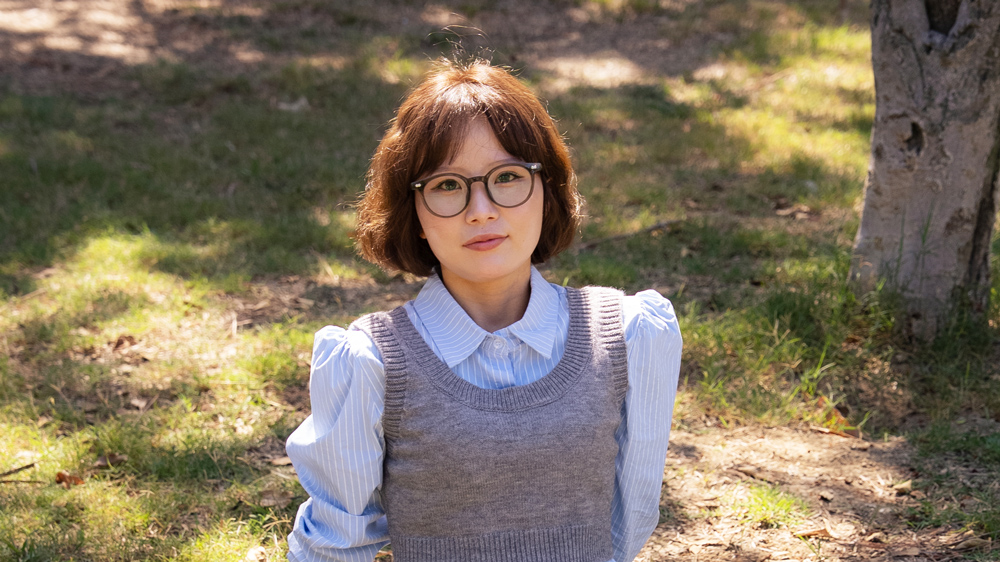
As a boatowner, I woke up early in the mornings to prepare supplies, get the crew together, and encourage them. I inspected the condition of the boat and hired people to help fix the engine and other faulty parts. Although I couldn’t go out to sea because I’m a woman, I was responsible for ensuring the ship operated smoothly.
But the harder I worked, the more government officials came to me—demanding baskets of clams and money. They justified their demands by saying: “The Party orders it,” threatening to punish anyone who refused. Every night I agonized over how to protect my people and keep my business going, and how I should respond. In those moments, I would remember the love and devotion my mother and aunt had poured into me and it gave me strength to persevere.
To escape my reality, at night I secretly watched South Korean TV shows on a television that was smuggled in from China.
My world turned upside down. With my friends who were also watching South Korean media, we would cautiously express our dissatisfaction together while also copying the hairstyles and outfits we saw in dramas. Sometimes, we would even try to mimic South Korean words or accents when talking or texting together.
But under Kim Jong Un, punishments became much more severe. Two people I knew were executed for watching and sharing foreign media. Our lives became harder, control over young people became more intense, and our resentment began to grow.

But no matter how much they tried to repress us, frustrated young people like me continued watching forbidden content as a way to forget reality. Foreign media has quietly found its way into North Korea for decades. As I grew up, it began spreading more than ever before, through USBs passed between friends or broadcasts picked up on illegal devices.
Many defectors, like me, can remember the exact episode of a TV show, a specific South Korean song, or even a traffic report, that planted the first seeds of doubt.
Of course, dramas and movies don’t tell the whole story, but they show a life that contradicts everything we were taught. And it makes you wonder: if life is so different out there, why does it have to be this way here?
I realized it doesn’t just show people that different lives exist. It gives them the belief that their life could be different. And that belief gives people the courage to choose a different future.
The thing about information is once you learn something, you cannot unlearn it. I remember watching people on my screen speak freely, laugh openly, and pursue their dreams—things that were unimaginable in North Korea. For the first time, I wondered if everything we were taught might be wrong. That doubt led to questions, and my curiosity became too strong to ignore. Now that I had seen the truth, I could never go back to the person I was before.
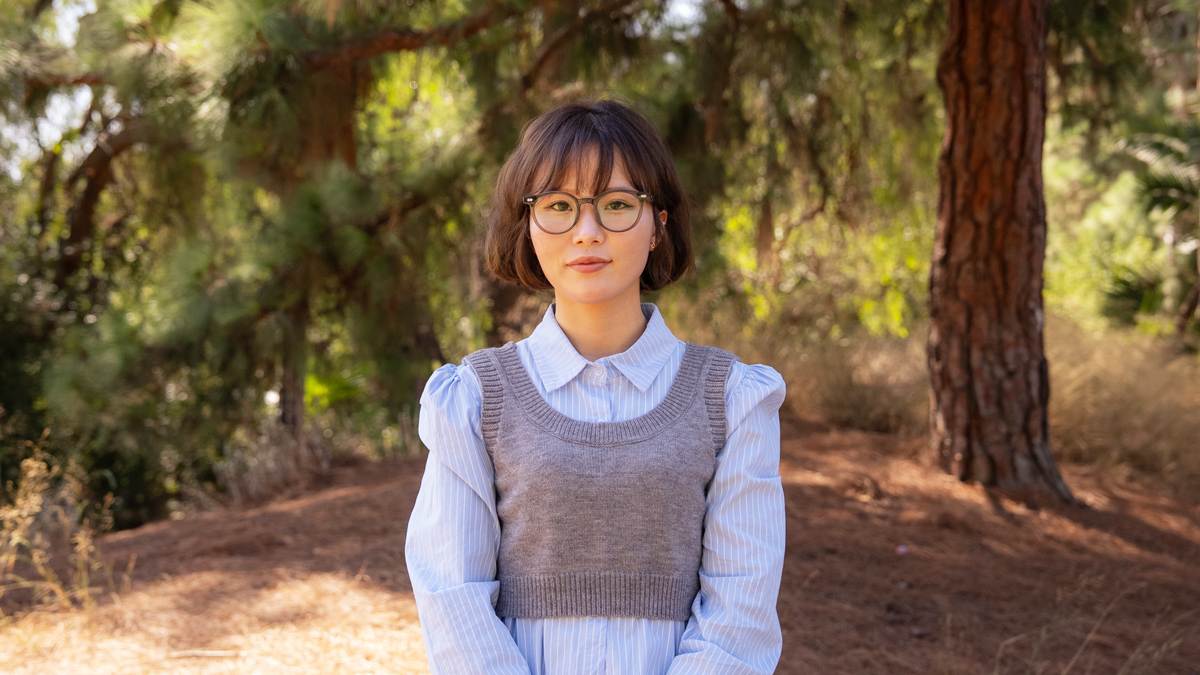
Escaping North Korea cannot be explained by the simple word “leaving.” This was especially true for me because I escaped together with my mom and my aunt. They had placed their trust in me when they gave me money for that boat. And now I was placing my trust in that boat to carry us across the sea to freedom.
I planned our escape in complete secrecy.
I bought a smuggled GPS device from China, carefully traced our route, observed the currents and tides, learned the patrol schedules of the guard boats, and figured out the blind spots of the coastal guard posts. I meticulously checked the condition of the boat and quietly prepared all the food and supplies we would need. I trained my body for the wind and the waves, and my mind for the terror of being caught.
Some nights I woke up in a panic. Other times my confidence crumbled and I thought, maybe I should give up and just accept the life I have. But in those moments, I imagined what waited at the end of the journey.
I wasn’t leaving just to stay alive. I was leaving so that I could live like a human being.
On the night we left, we climbed into my boat and pushed off into the dark water. I gripped the rudder and let the current carry us south, carefully navigating around the guard posts and patrol boats who were on the water looking for people like us.

I knew what would happen if we were caught. Arrest. Endless investigations. Humiliation. Public trials. Political prison camp. And the possibility that I might lose the people I loved most in the world.
My mother and aunt were trembling with fear. I had to hide my own fear to tell them what I could only hope. We will survive. We spent the night being tossed back and forth on the East Sea. Black waves lifted our boat like a toy before smashing it down again. Every crash sent water over the sides and threatened to swallow us up.
Suddenly, a patrol ship appeared. Its lights stabbed the water, blinding us, and started coming closer and closer. It was coming for us. My chest pounded so hard I felt it might burst. I thought of the sleeping pills we had brought.
We had agreed that if capture became inevitable, we would rather take our own lives. It was a fate we preferred to execution or prison camps. As the coast guard closed in, I wondered, is it time for the pills?
But I refused to give in. We were so close. I steered away from the searchlights, surrendered the boat to the churning water, and pushed on forward.
Suddenly, the patrol vessel stopped and turned back around. They could no longer chase us. We had reached the maritime border. The sea calmed, as if it was welcoming us to freedom. And as the sun rose, we saw the outline of land.
A South Korean fisherman, hearing radio reports that North Korean patrols were in pursuit, realized we were the boat being chased. He steered his boat toward us and said, "Welcome. You are safe now."
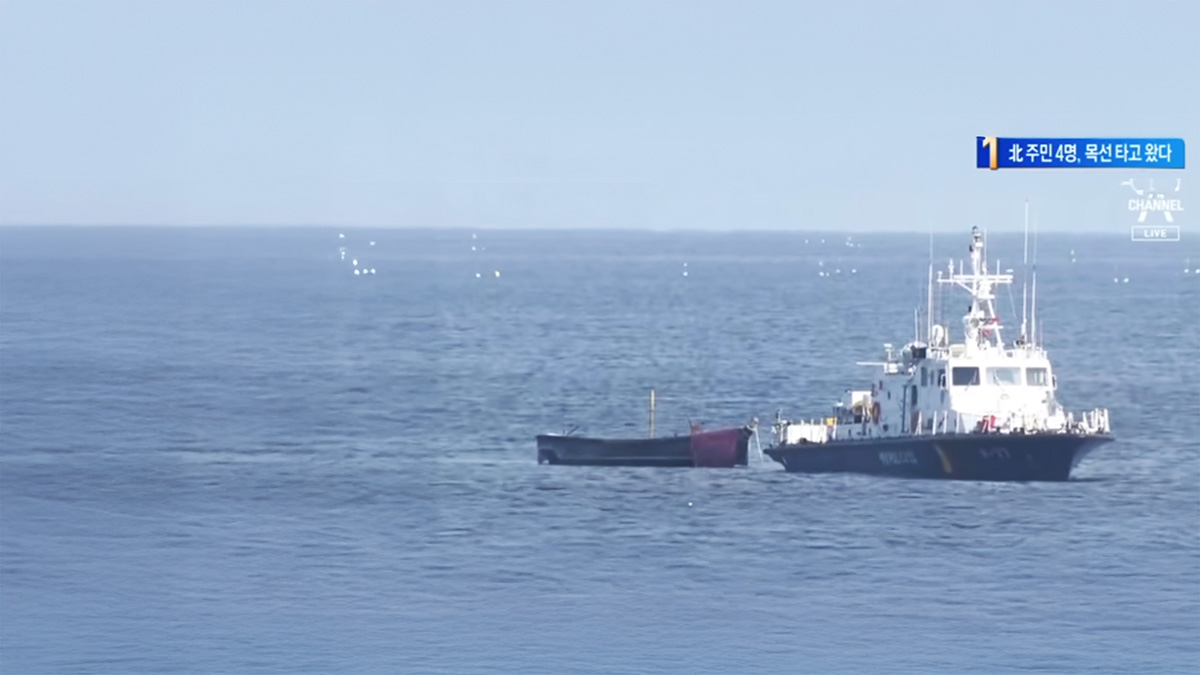
It’s been almost two years since we arrived in South Korea.
I still remember moving into our apartment and using a showerhead for the first time, experiencing hot water flowing straight from the tap. I couldn’t believe it. That day, my mother, my aunt and I took turns showering, laughing, and saying to each other, “So this is what a human life feels like.”
For the first time in my life, I could choose my studies, my job, my clothes, my hobbies—even the way I spoke—for myself. It felt like an entirely new world. We were being reborn, leaving behind a past of silence and control for a life with dignity and a future we could choose ourselves.
My mother began studying for a professional certification. And my aunt enrolled in social welfare classes to help others. I studied hard and was recently accepted into Ewha University. I have also been active in North Korean human rights activism and I even started a YouTube channel to show the world what it looks like to start a new life in South Korea.
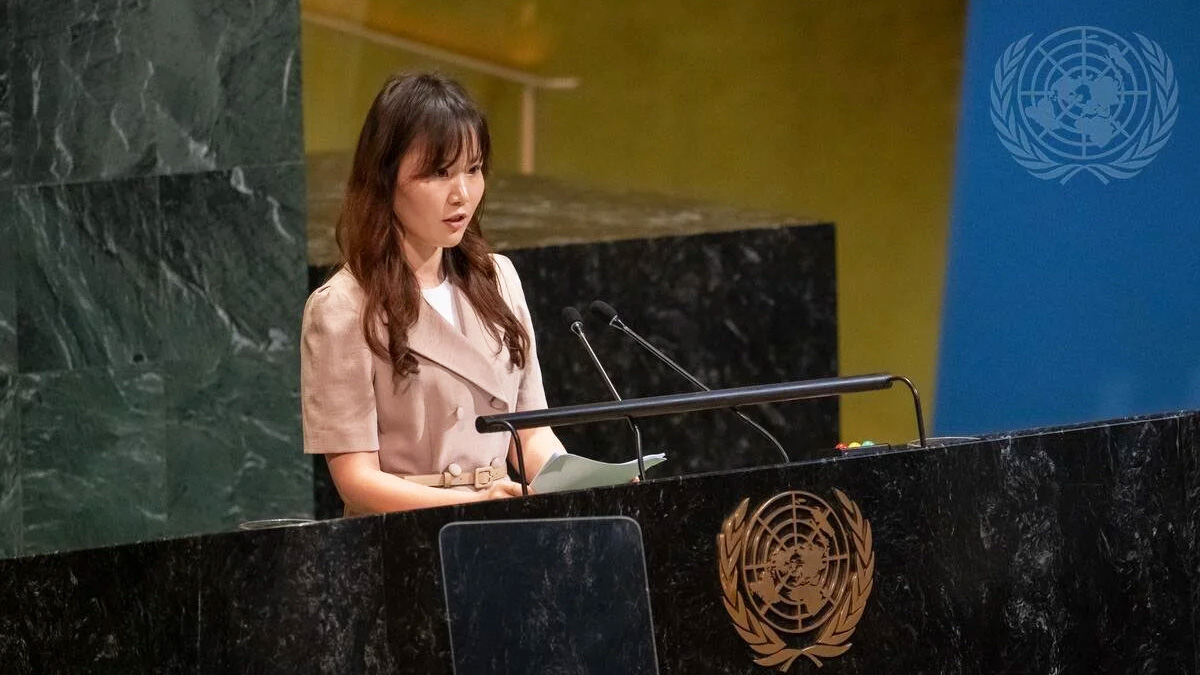
Hope is dangerous for the North Korean government. Millions of people live with anger and sadness, but even more live in resignation. Most do not realize their rights are being violated—they don’t know what “rights” are. I once believed it was normal for the state to control every part of our lives. I thought every country lived this way.
But the moment you realize life could be different, hope begins to take root. And once hope exists, change is no longer unimaginable.
My dream is that someday North Korea will be a place where young people choose their own paths, where no one is punished for their words, and where every person lives as the true owner of their life. While so much of North Korea’s reality is dark, change is already happening. And what sparks that change is information. A single truth from the outside world, a glimpse of what life could be, can plant a seed of doubt, or ignite a spark of hope.
That’s why I speak out. If I don’t tell my story, who will tell it for me? If I stay silent, will the death of my friends, and the suffering and starvation my family endured be forgotten?
Right now, in North Korea, there is someone just like me—sitting in a dark room, secretly watching a South Korean broadcast, quietly wondering: Could I also live like that?
I want my story to prove that this hope can become a reality. I want to stand in the middle of that change. Not just as someone who escaped to enjoy freedom, but as someone determined to one day share that freedom with all North Korean people.
Freedom is not given, but it is something we can achieve. With your support, we can write a future where all North Korean people are free.
Foreign media gave Gyuri a glimpse of the outside world—and the courage to seek freedom.
Increasing North Korean people’s access to outside information is one of the most effective levers for change in the country. And that is exactly what we’re doing at Liberty in North Korea
In partnership with North Korean defectors and engineers, LiNK develops tailor-made technology, tools, and content that help people inside the country access more information more safely. These glimpses into the wider world build people’s resilience to the regime’s propaganda, and emboldens them to imagine a different future for themselves and their country.
Help fuel work that’s directly supporting North Koreans driving change on the inside.




